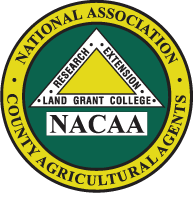POLLINATORS: OUR TINIEST AGRICULTURAL AMBASSADORS
Sullivan, J.11Extension Agent - Agriculture, University of Florida IFAS Extension-Osceola County, KISSIMMEE, FL, 34744-6107
Abstract:
Situation: Pollinators worldwide are in decline and scientists are concerned about resulting crop pollination deficits and diminishing native biodiversity. There is also alarm from the general public about threats to pollinators. Unfortunately, abundant misunderstanding exists about pollinators, causes of the “pollinator apocalypse” and protecting pollinators. Furthermore, the public lacks an accurate understanding of related agriculture and food systems issues. Educating people about pollinators is an opportunity for Extension to provide science-based information on a wider array of topics including the economic contributions and ecosystem services of agricultural lands and producers. Objectives: 1) Increase participant knowledge of pollinators and agriculture 2) Encourage participant adoption of Pollinator Protection Practices, participation in citizen science projects and actions that support Florida agriculture. Methods: The Agent created a Florida Pollinators presentation aimed at general adult audiences, covering pollinating species, creating pollinator habitats, Florida agricultural crops, the beekeeping industry, and responsible pesticide use. While highlighting pollinator threats, the presentation introduces larger issues like climate change, food security, and preservation of agricultural and conservation lands. The Agent also developed an accompanying “Plants for Pollinators” list and a “Pollination Station” exhibit featuring an interactive trivia game to educate the public at community events. Results: The Agent taught pollinator awareness to 243 (two-hundred-forty-three) people at seven events (2019-2020). Over 100 people were educated at the pollinator exhibit. Participants in pollinator awareness classes reported taking action as a result of what they learned, including planting pollinator gardens and reducing pesticide use. Formalized evaluation tools were subsequently developed to capture program impacts: 1) A pre-post questionnaire to measure knowledge gain from attending a pollinator awareness presentation 2) A six-month follow-up questionnaire to track Pollinator Protection Practice adoption, citizen science participation, and actions supporting agriculture. Conclusion: Demand for pollinator education is high, presenting a unique chance to reach non-agriculture audiences on important agriculture issues. The public has a desire to learn about pollinators and is willing to take action to support them, whether it’s planting pollinator habitats, working locally to protect conservation and ag lands that support pollinators, documenting pollinator sightings, or making purchasing decisions that support Florida agriculture.
